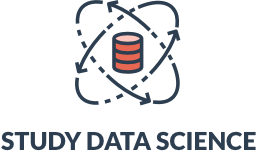How to Become a Machine Learning Engineer
Machine learning has been in the news lately, and it’s hard to ignore. This variety of data science is a growing form of artificial intelligence that captures the interest of many professionals and businesses across the country. Recently, machine learning finally reached a point of reliability and economic viability. It is beginning to permeate startups and businesses alike, creating countless opportunities for data science professionals. Here’s everything you need to know before becoming a machine learning engineer.
Here are some basic facts about information sciences and the machine learning career path:
Listings
Average Salary
Hiring Companies
What Is Machine Learning?
Machine learning is a form of artificial intelligence. Essentially, machine learning professionals teach computer programs how to learn on their own. This form of artificial intelligence involves coaching machines to recognize patterns and predict future results based on what they learned from previous trends. Obviously, it’s more complicated than that—but the basic concept is relatively easy to grasp.
What Do Machine Learning Engineers Do?
Machine learning engineers design systems that use artificial intelligence to make predictions and detect patterns. Engineers design algorithms to, in essence, ‘learn’ from historical data. Machine learning engineering is a complex task with plenty of innovation due to the recent development of this technology.
Machine Learning Job Description
Machine learning engineers use high-level programming languages and data science skills to design (and operate) algorithms. These professionals need data science skills to create systems that ‘learn’ from data, and to utilize databases to streamline the process. Here are some key tasks of machine learning engineers:
Machine learning engineers focus less on analytics than other data science roles. Instead, these professionals are behind the technical aspects of programs that other data experts use. Machine learning engineers use their technical skills to increase the efficiency of new technologies.
What Are the Required Skills for Machine Learning Careers?
Data science is a highly technical field that requires lots of well-refined skills. You need to approach your education with intentionality and planning to succeed in the field. Here are the most important skills required for a career in data science:
How Much Do Machine Learning Engineers Make?
Machine learning has the potential to revolutionize technology in the 2020s. Since the technology has only recently become commercially viable, machine learning professionals earn high salaries for their specialized skills. Here are the average salaries for machine learning engineers across several major American metropolitan areas:
| City | Average Salary | Entry-Level Salary | Mid-Career Salary | Late-Career Salary |
| Atlanta, GA | $89,469 | $64k | $89k | $115k |
| Boston, MA | $105,749 | $76k | $106k | $134k |
| Chicago, IL | $94,045 | $68k | $94k | $120k |
| Cleveland, OH | $85,395 | $60k | $85k | $109k |
| Dallas, TX | $91,839 | $66k | $92k | $117k |
| Los Angeles, CA | $101,267 | $73k | $101k | $132k |
| Miami, FL | $88,418 | $63k | $88k | $113k |
| Milwaukee, WI | $87,490 | $63k | $87k | $111k |
| Minneapolis, MN | $93,558 | $67k | $94k | $119k |
| New York, NY | $118,604 | $86k | $119k | $149k |
| Philadelphia, PA | $93,496 | $67k | $93k | $119k |
| Phoenix, AZ | $88,452 | $62k | $88k | $113k |
| Portland, OR | $95,728 | $68k | $96k | $120k |
| San Francisco, CA | $136,289 | $102k | $136k | $171k |
| Seattle, WA | $126,477 | $93k | $126k | $160k |
Data science is a complex field that requires a high level of technical skill. Predictably, the field offers high salaries to anyone willing to put in the work and learn the trade.
- Mean Annual Salary: $114,121
- Projected Job Growth Outlook (2018-28): 16%
- Number of People Employed: 31,000
Machine learning engineers use algorithms, engineering principles, and programming languages to build artificial intelligence systems.
- Mean Annual Salary: $124,567
- Projected Job Growth Outlook (2018-28): 16%
- Number of People Employed: 140,000
Data scientists use programming languages, statistical skills, and algorithms to manage and interpret large data sets.
- Mean Annual Salary: $62,435
- Projected Job Growth Outlook (2018-28): 26%
- Number of People Employed: 109,000
Business administration requires a healthy level of analysis. Among all job titles, none serve this need better than business analysts. These professionals solve business problems, and serve the role of ‘trend finders’ within a company.
- Mean Annual Salary: $62,435
- Projected Job Growth Outlook (2018-28): 26%
- Number of People Employed: 109,000
Data analysts use coding languages, frameworks, and data visualization tools to transform large volumes of non-descript data into useful and actionable information.
| Position | Salary |
| Entry Level (0-4 Years) | $78,000 |
| Mid-Career (5-10 Years) | $114,121 |
| Experienced (10-20 Years) | $125,000 |
| Late-Career (20+ Years) | $150,000 |
Generally speaking, data scientists earn an impressive salary, especially when bonuses and additional cash compensation count with the total. Today, data scientists earn an average total income of $146,937, with some professionals grossing nearly $200,000 per year.
The Types of Machine Learning Engineers
Machine learning is a new field, and there aren’t a lot of job title variances just yet. As a result, the most common positions in the field are machine learning and artificial intelligence engineers. These programmers have varied responsibilities, but fundamentally work with similar systems.
How Can You Become a Machine Learning Engineer?
Machine learning engineers usually start off as data scientists. Many companies promote data scientists into machine learning positions or hire them outright for the job. Professionals with a background in software engineering hold an advantage in the field. Some colleges and coding bootcamps offer dedicated machine learning programs or other courses with a specialty in artificial intelligence. Here are the top ways to become a machine learning engineer:
College or University
Numerous machine learning engineers have a college background. Most of these professionals started off in computer science, software engineering, or an analytical STEM field. Others are self-taught and have a background in business or a similar subject.
Coding Bootcamp
Coding bootcamps are dedicated technology degree training programs. These schools, which often last less than a year, are the fastest route into a machine learning job. Many bootcamps offer job guarantees and placement assistance throughout the program.
Coding Bootcamps
Bootcamps strike a balance. While they will not provide the same comprehensive education that a four year degree will, they will provide you with on the ground, practical training to get you into software engineering as quickly as possible. Coding bootcamps cost an average of $13,600 for a full-time education. These programs run between 3 months and 1 year, but schedules vary widely. Full-time programs are available, as are part-time and online programs in all shapes and sizes. Additionally, students can attend bootcamps for other tech careers including web development, data science, cybersecurity, and more. Software engineering is an amazing career. Getting to design entire complex systems that function in unison with other systems like cogs in a giant machine is deeply appealing to many. If it’s appealing to you then don’t wait. Start learning now, and enter a field where cutting edge is the norm.
- Duration: 1 to 5 years
- Cost: $0 (or minimal)
- Average Base Salary: Unknown
- Duration: 3 to 12 months
- Cost: Avg. $13,600
- Average Base Salary: $70,700
- Duration: 4 to 6 years
- Cost: Avg. $34,740 (4 years)
- Average Base Salary: $65,900
- Duration: 1.5 to 2 years (in addition to Bachelor’s Degree)
- Cost: Avg. $30,000 to $100,000 (in addition to Bachelor’s Degree)
- Average Base Salary: $114,000
- Duration: 4 to 8 years (in addition to Bachelor’s Degree)
- Cost: Avg. $50,000+ (in addition to Bachelor’s Degree)
- Average Base Salary: $124,000
FAQ
Will coding bootcamp help me get a job?
Absolutely! Coding bootcamp is a proven way to train for a job in tech. Many coding bootcamps offer job guarantees, and some refund tuition if graduates can’t find a job in the field they trained for. In fact, coding bootcamp teaches skills that many college computer science graduates lack.
How much do coding bootcamps cost?
Coding bootcamp tuition varies. Coding bootcamps in New York City cost around $10,000 to $20,000. However, many scholarships and tuition deferment programs are available, so what you see doesn’t have to be what you pay.
What are income share agreements?
Income share agreements, or ISAs, are a new way to pay for education. These programs defer tuition until after students graduate and find a job in the industry. Once students are employed and making above a certain income threshold (usually $40-60,000 per year) they begin paying a fixed percent of their income, often for around 2 years. If students can’t find a job, many bootcamps waive the cost of tuition.
Do I have to learn coding to work in the tech industry?
You don’t have to learn coding to work in the tech industry. In fact, there are several non-coding bootcamps in New York City. These programs train you for a position in tech sales, marketing, or product management–all of which are well-paid positions with plenty of advancement opportunity.








